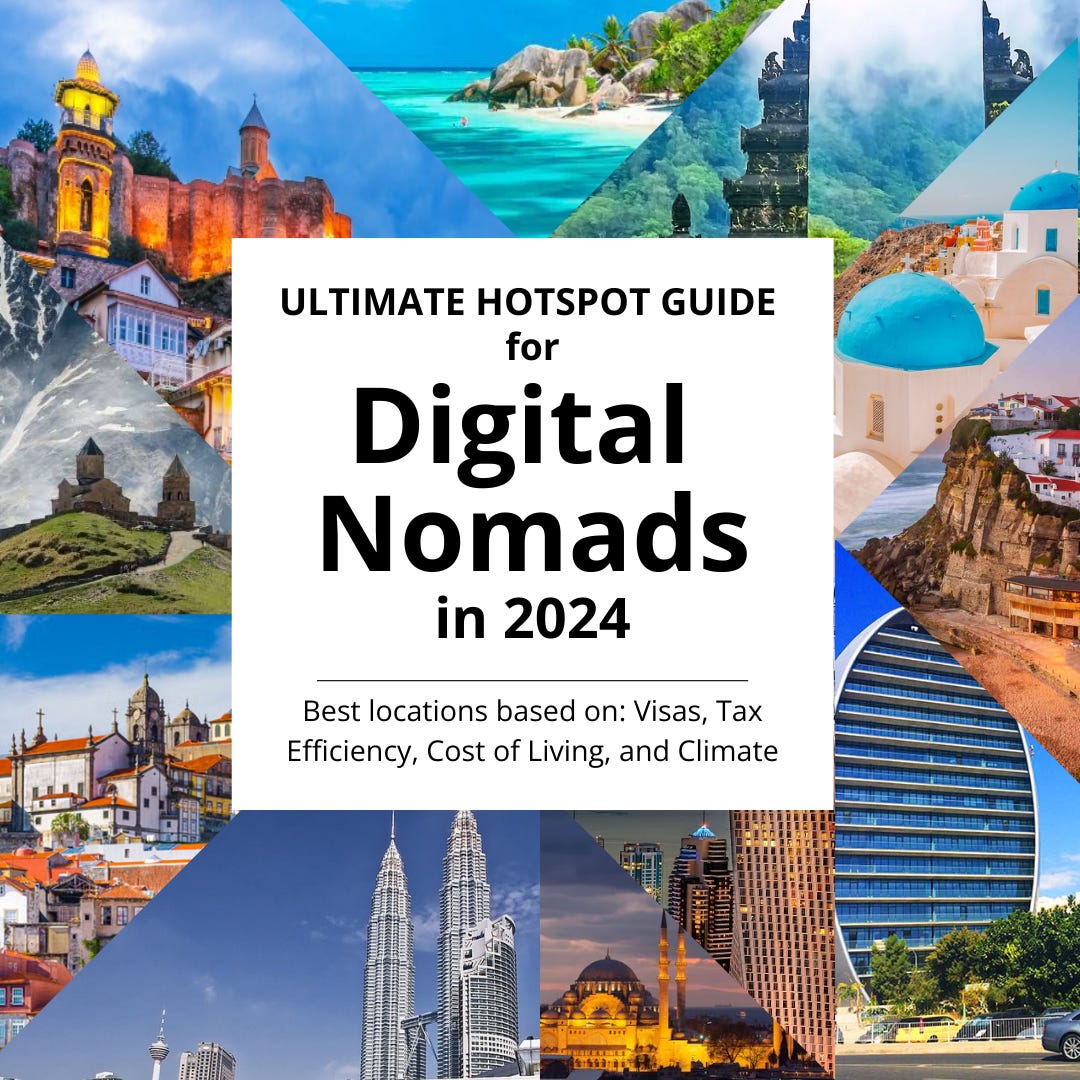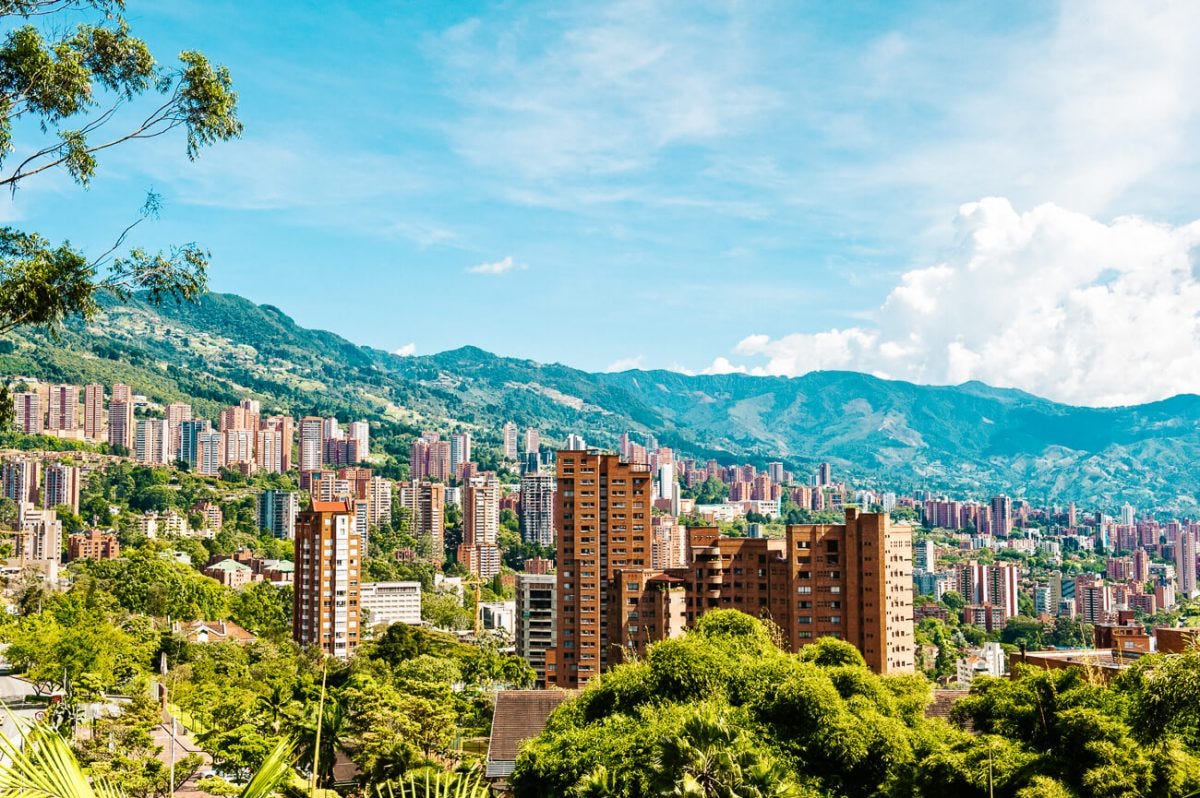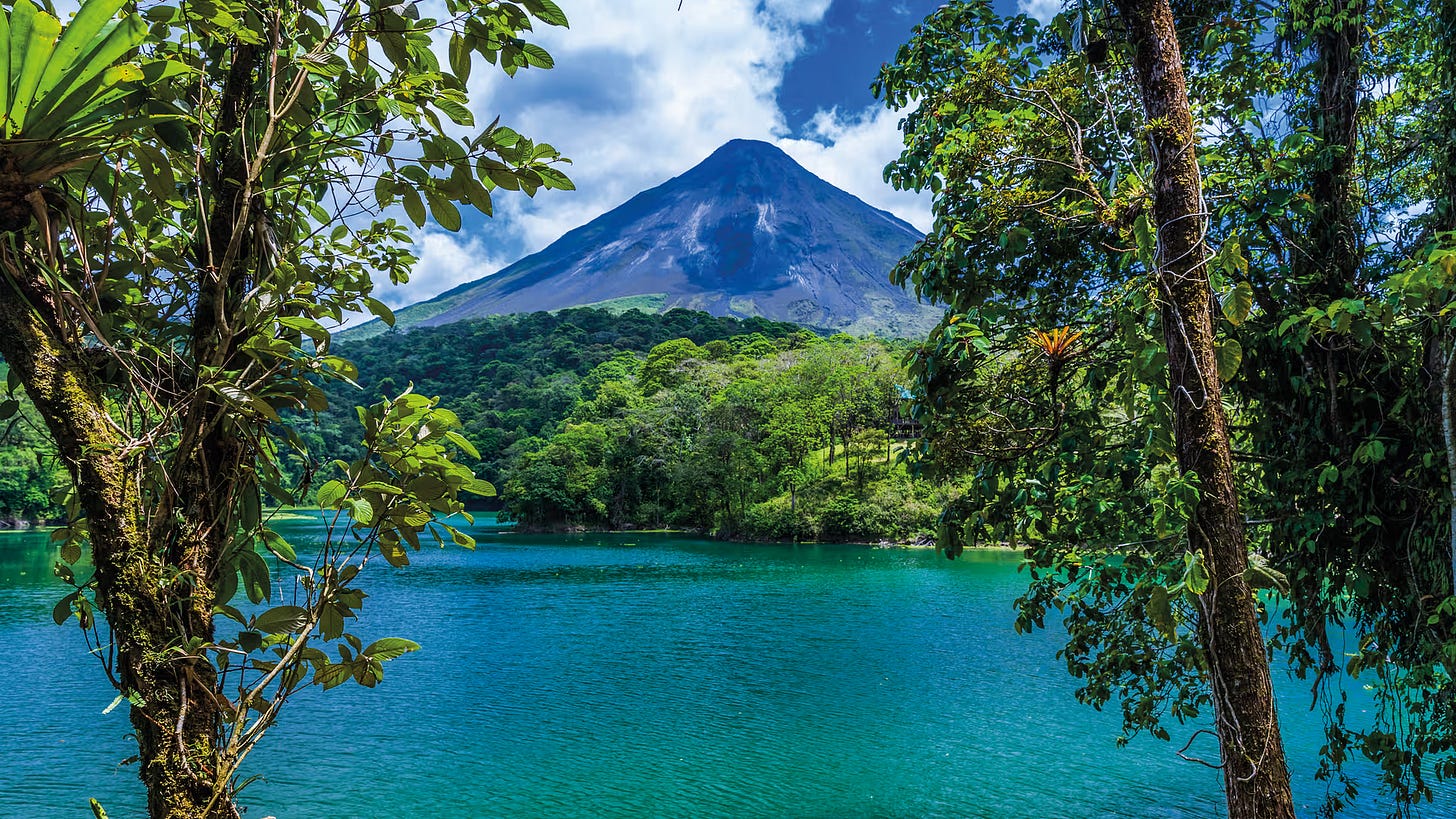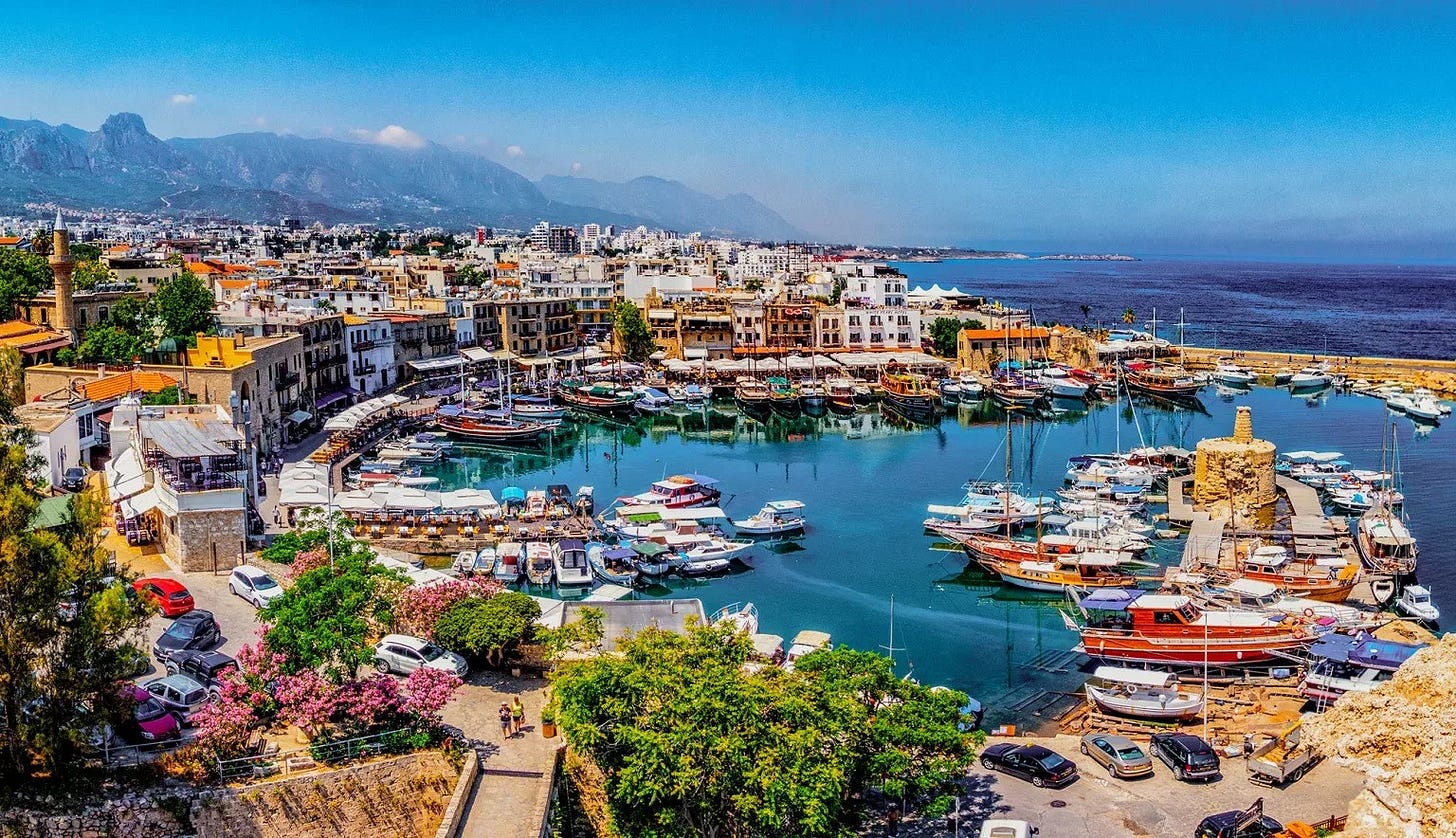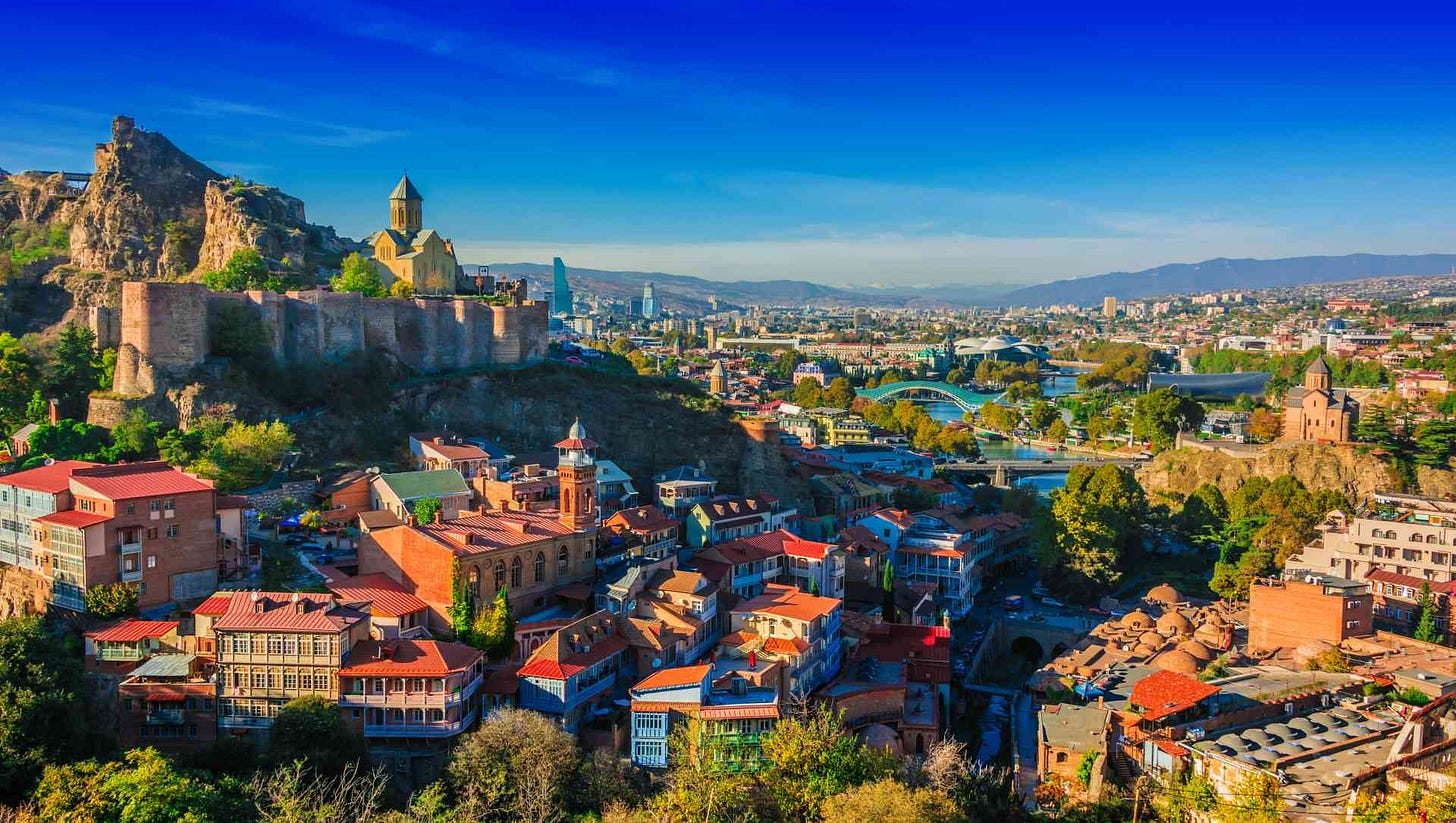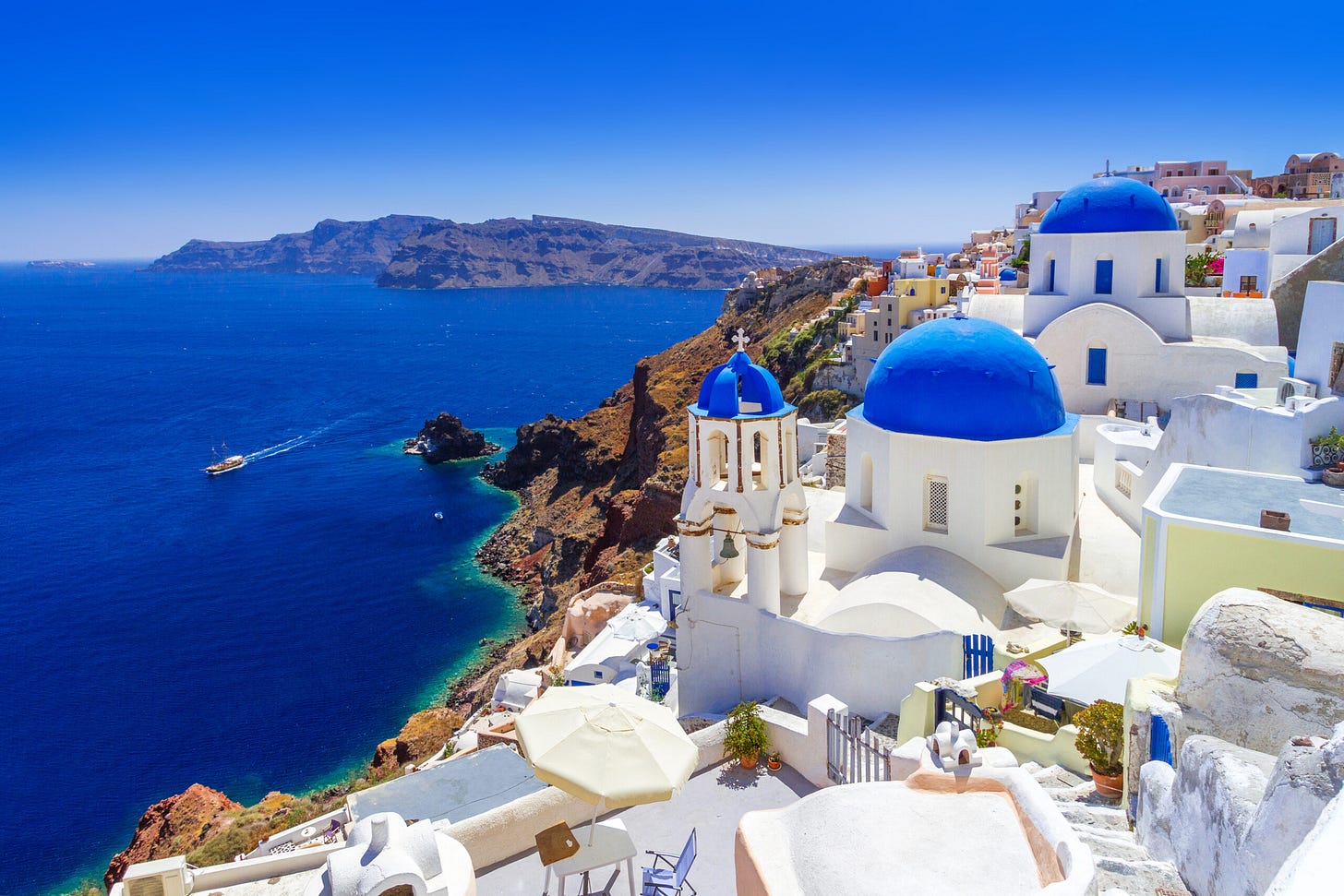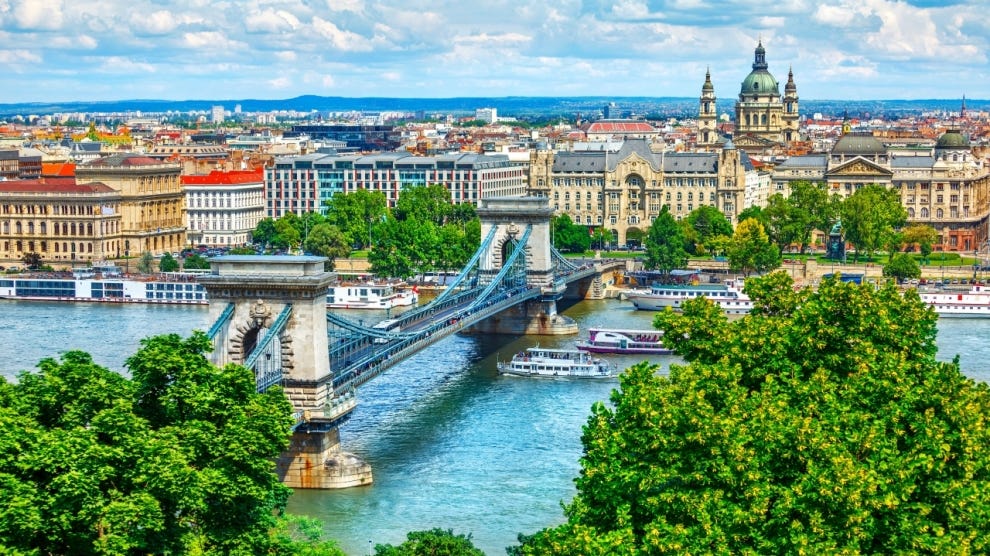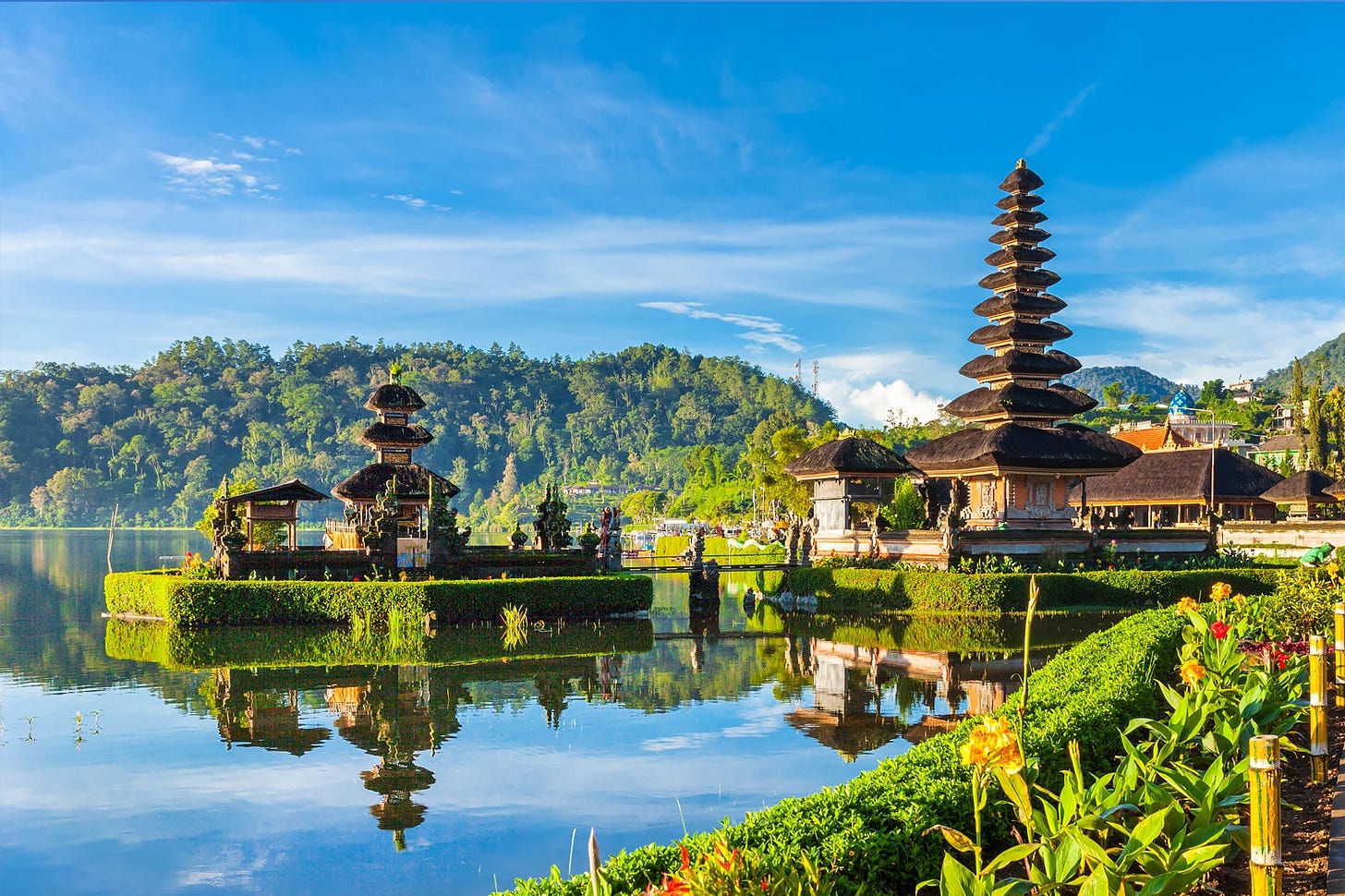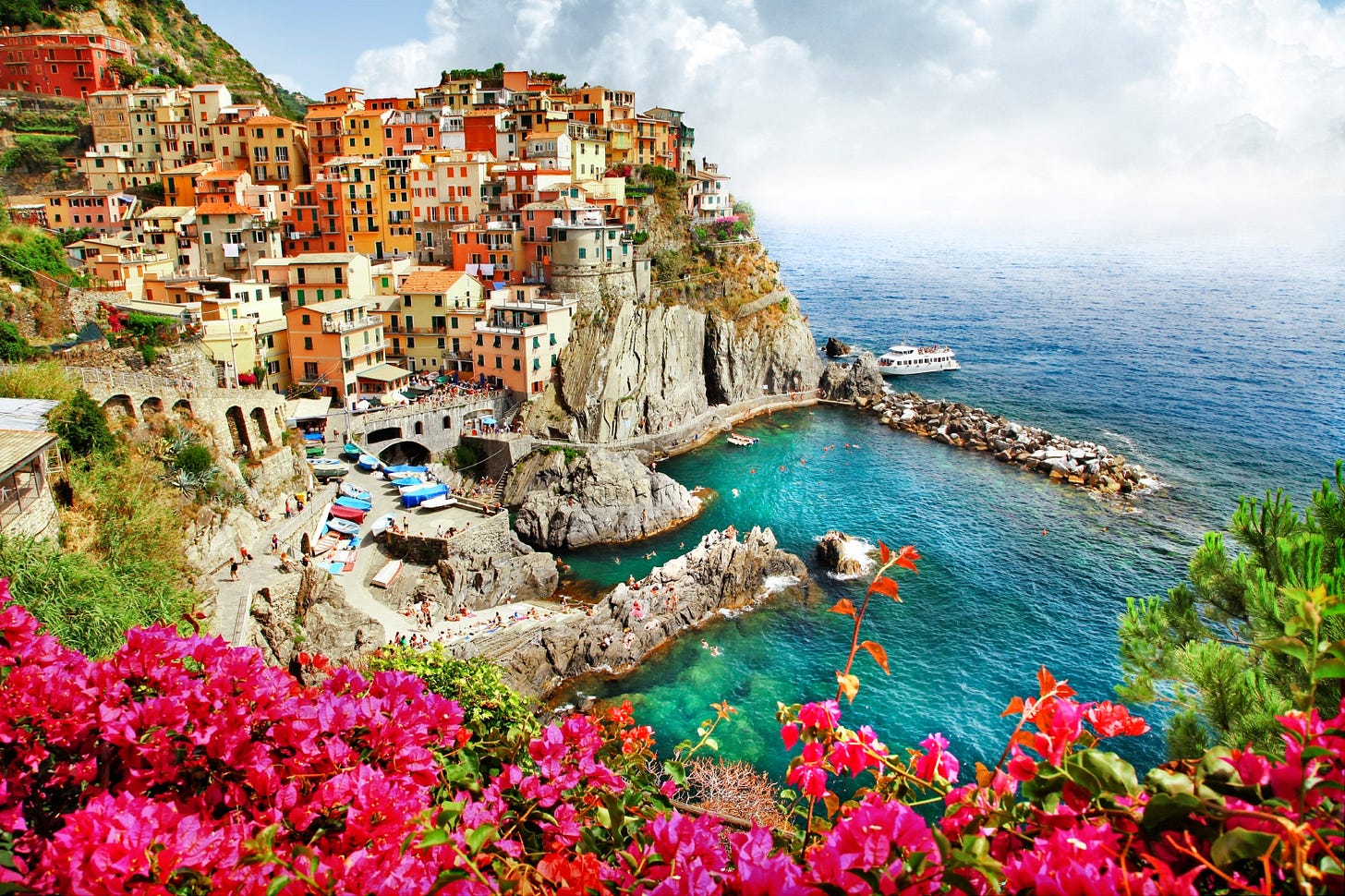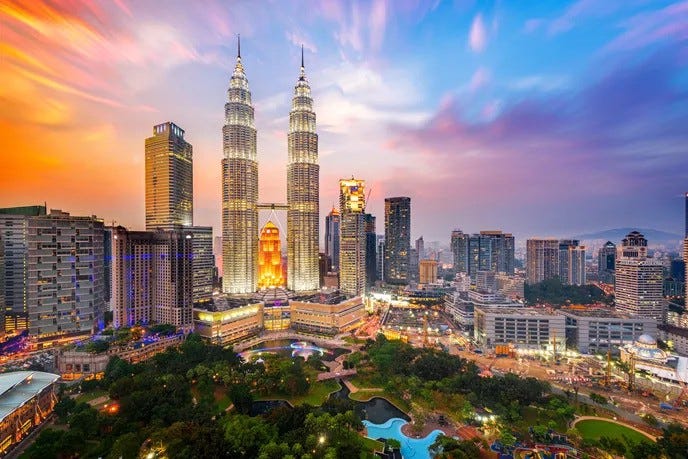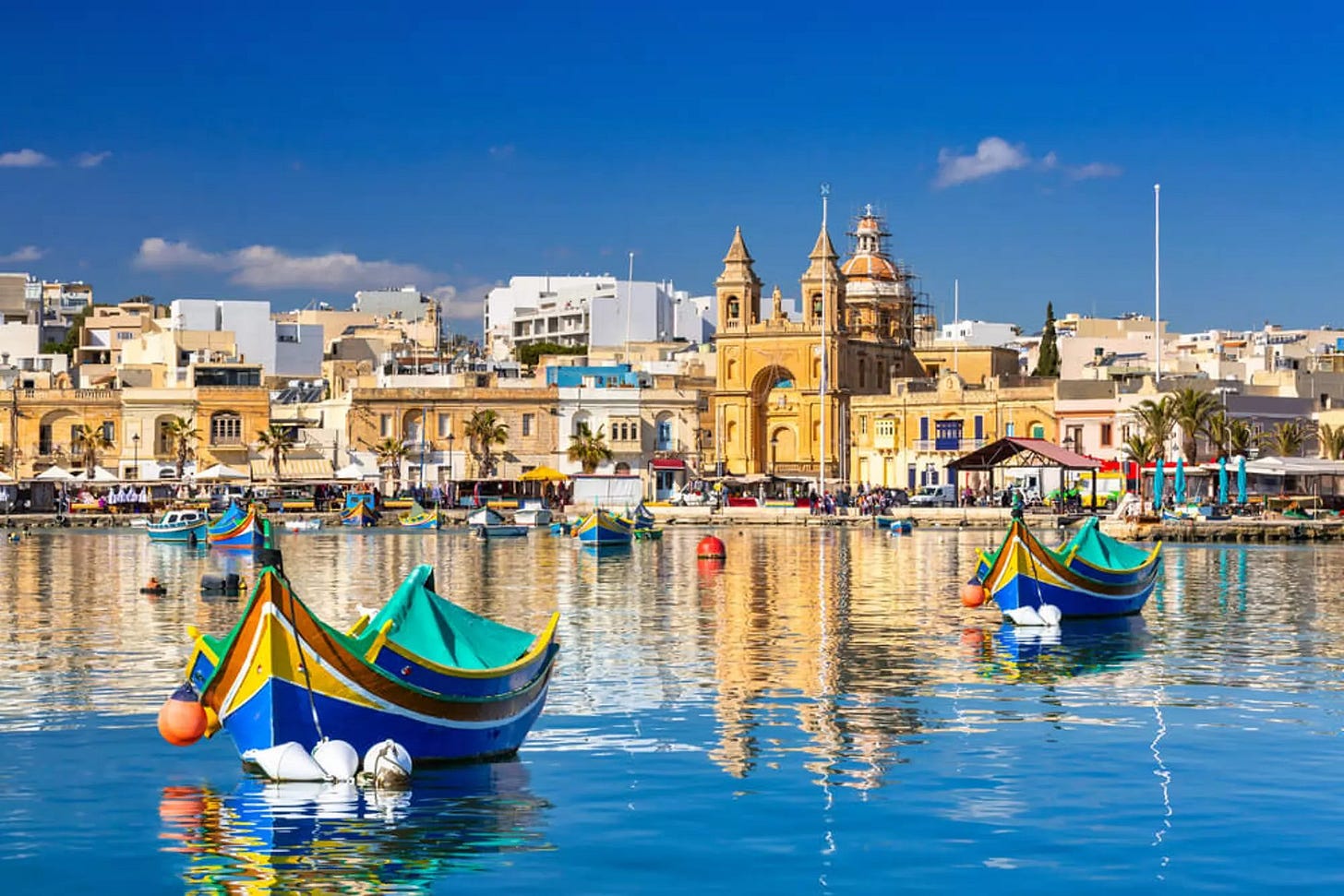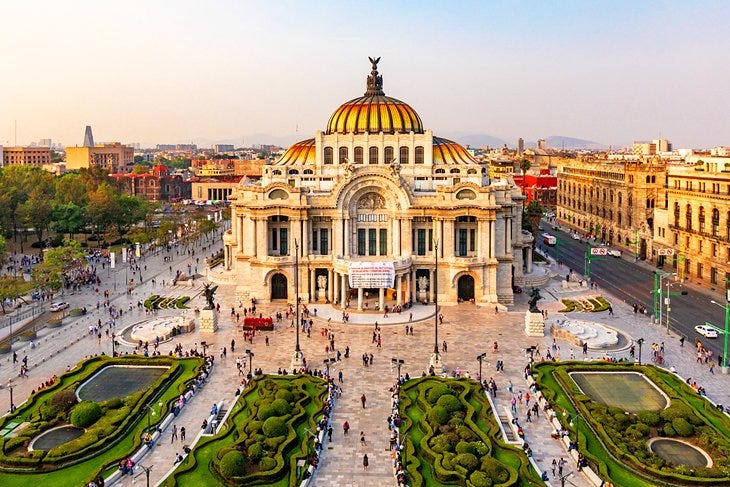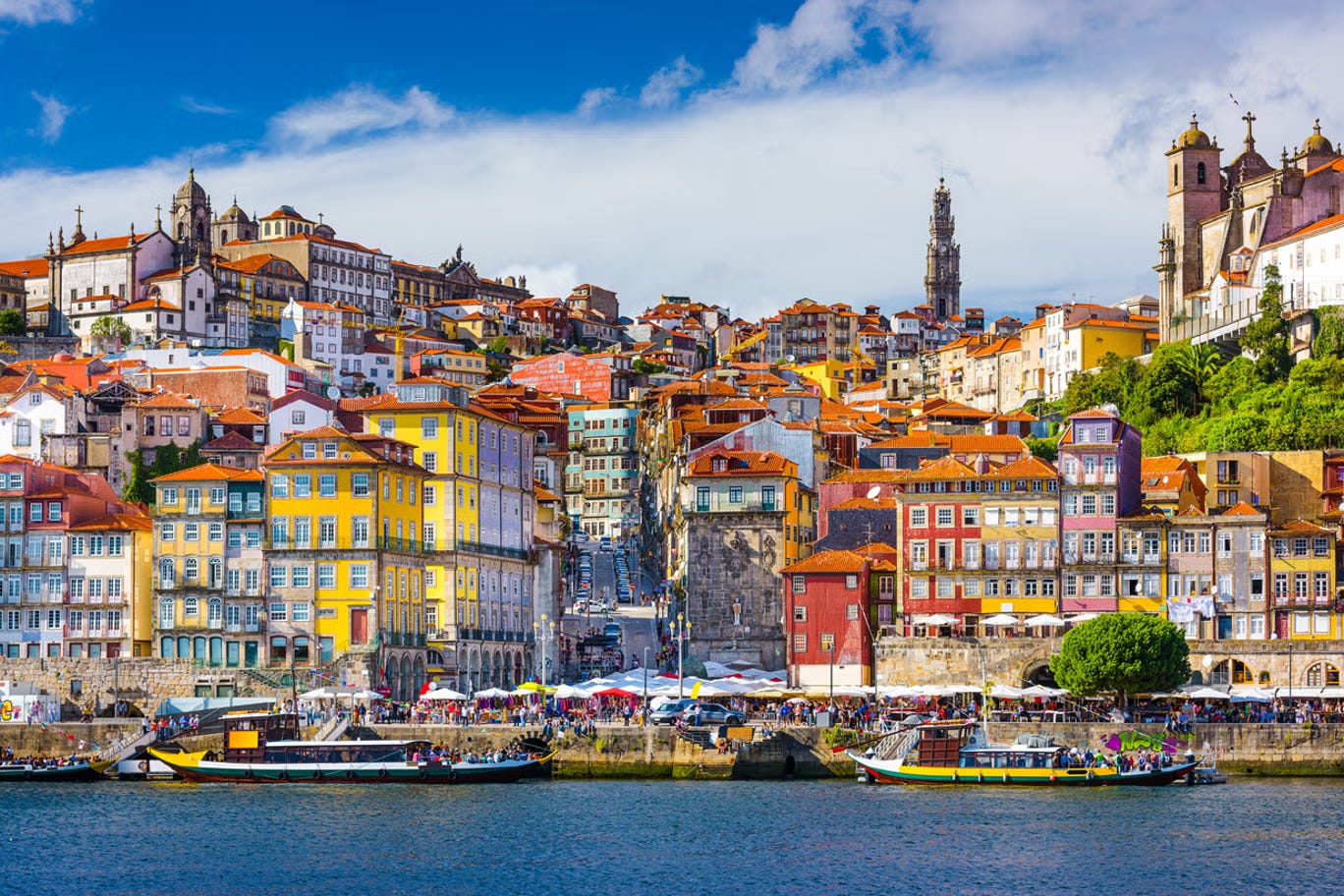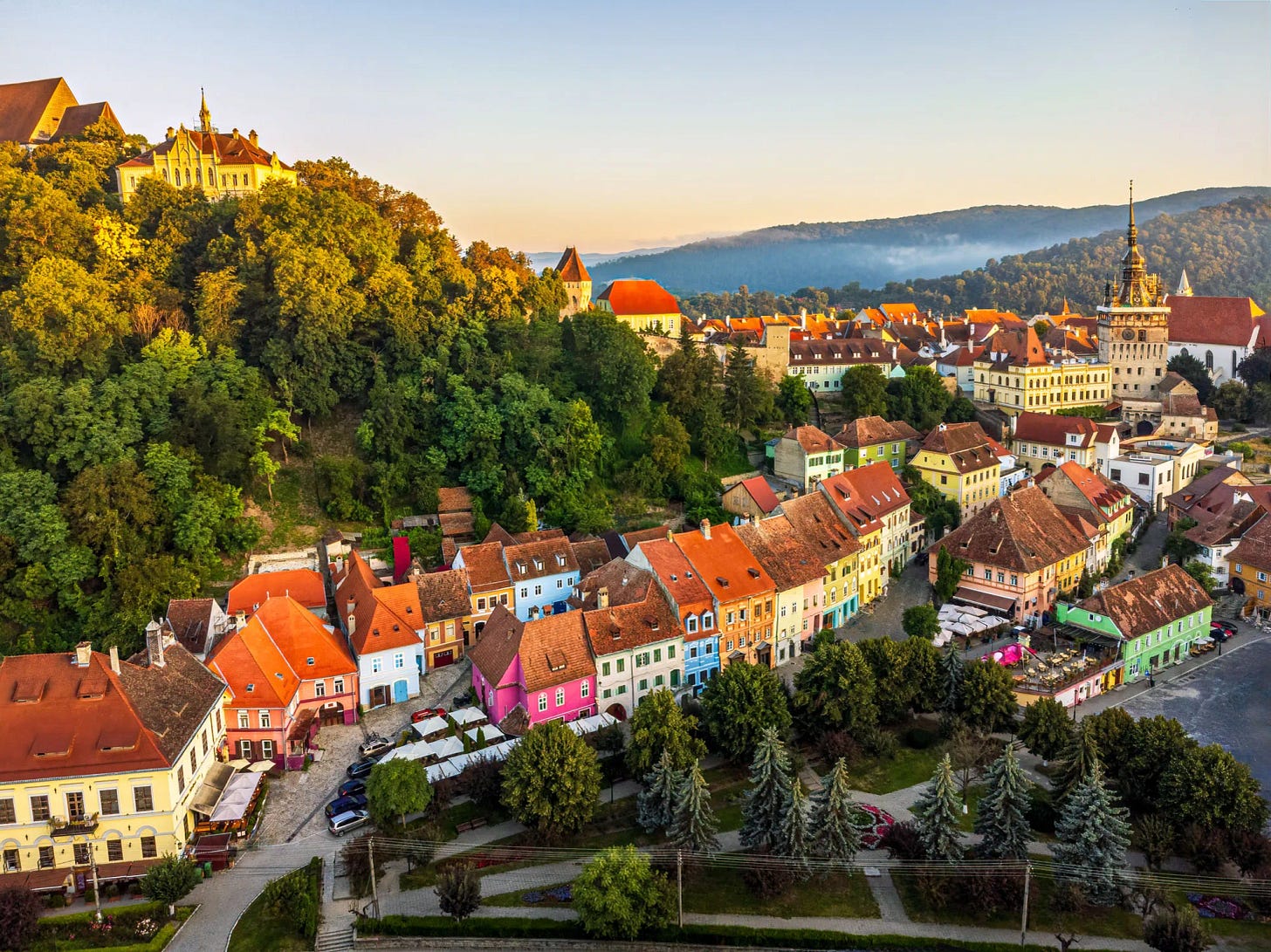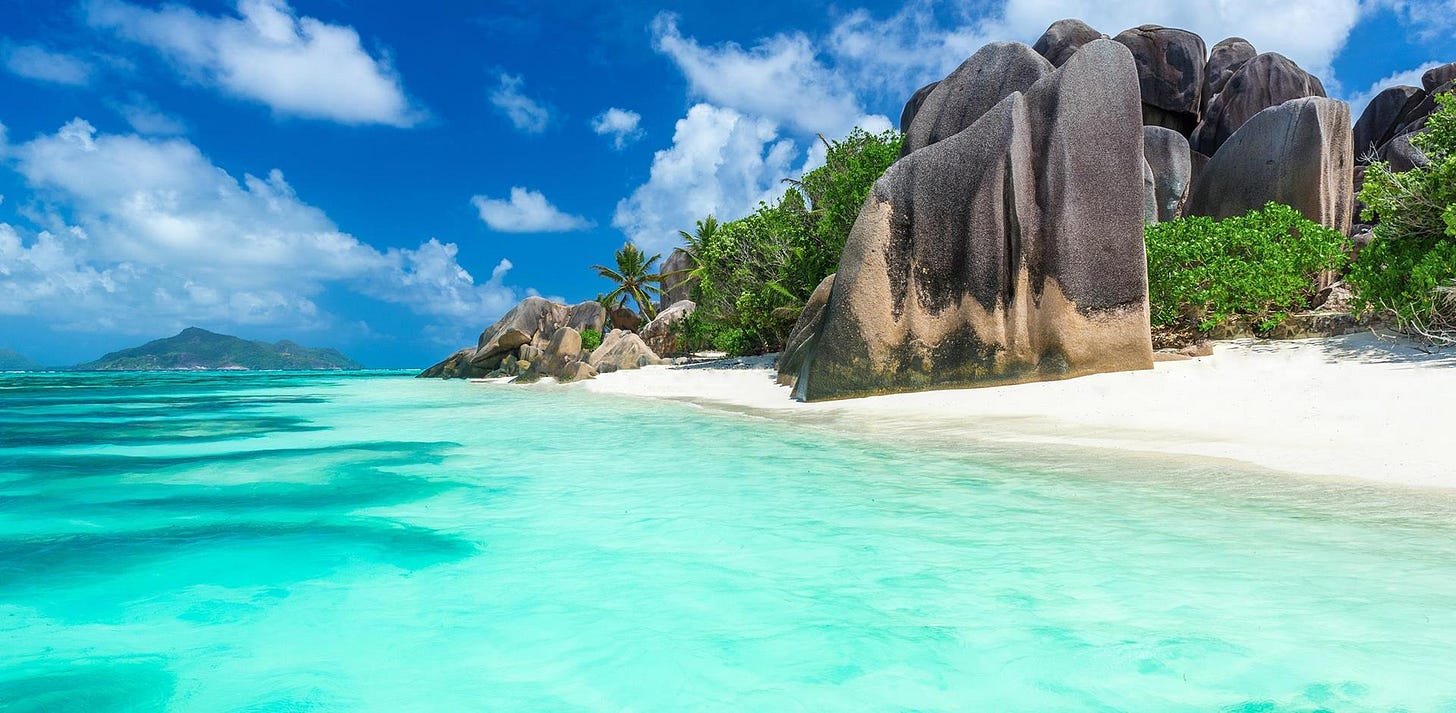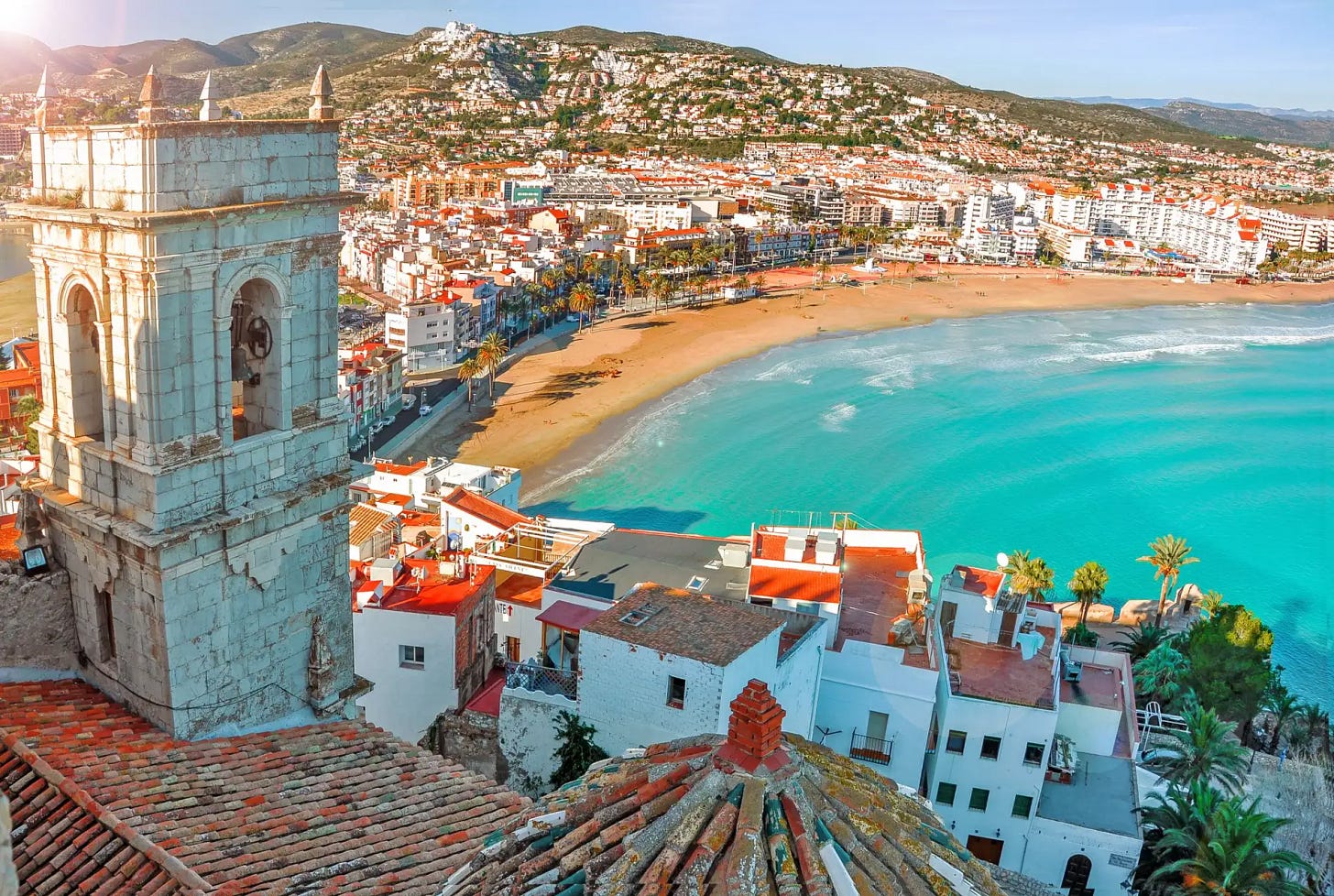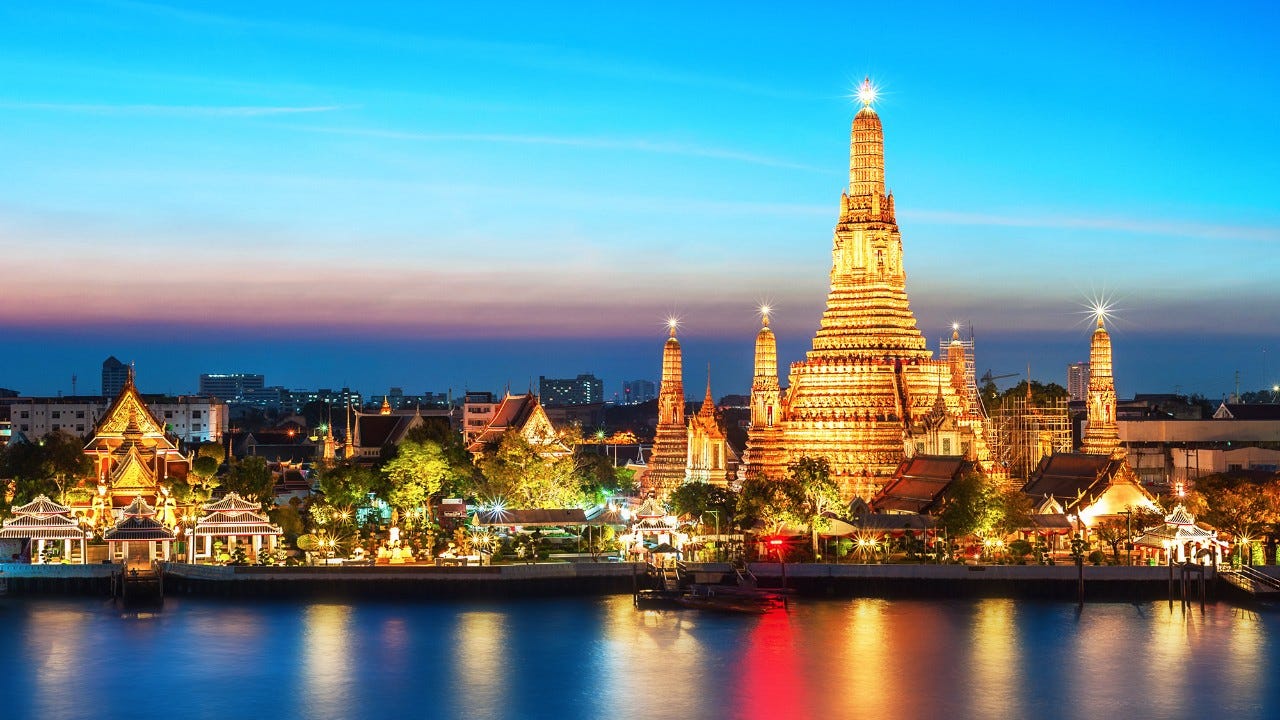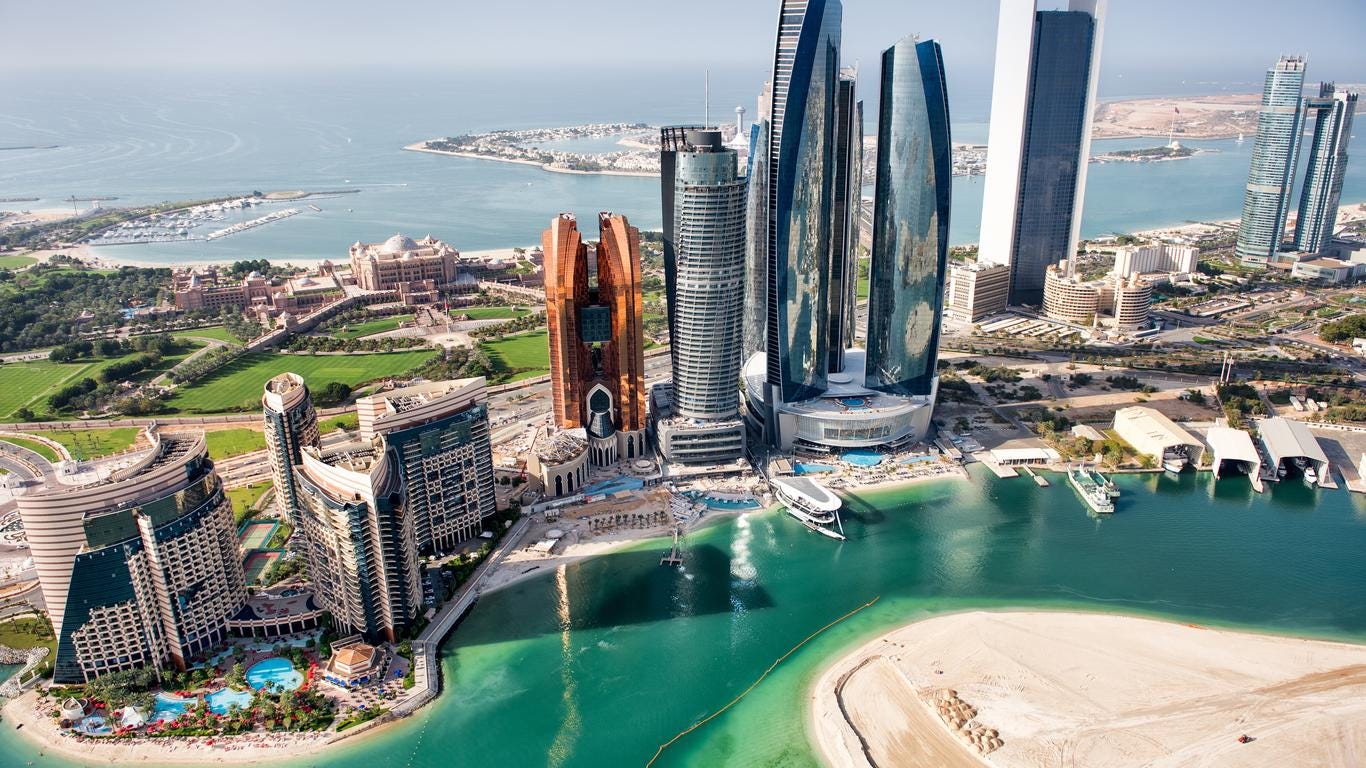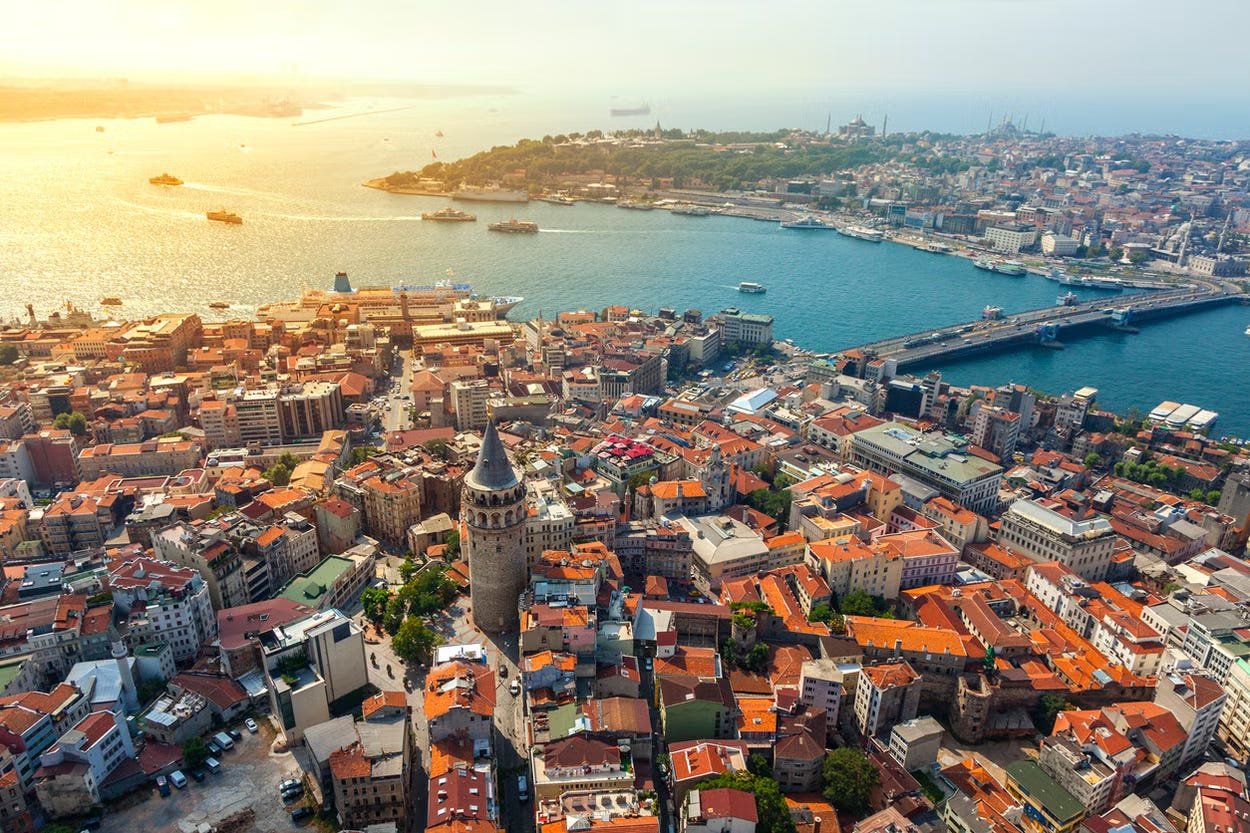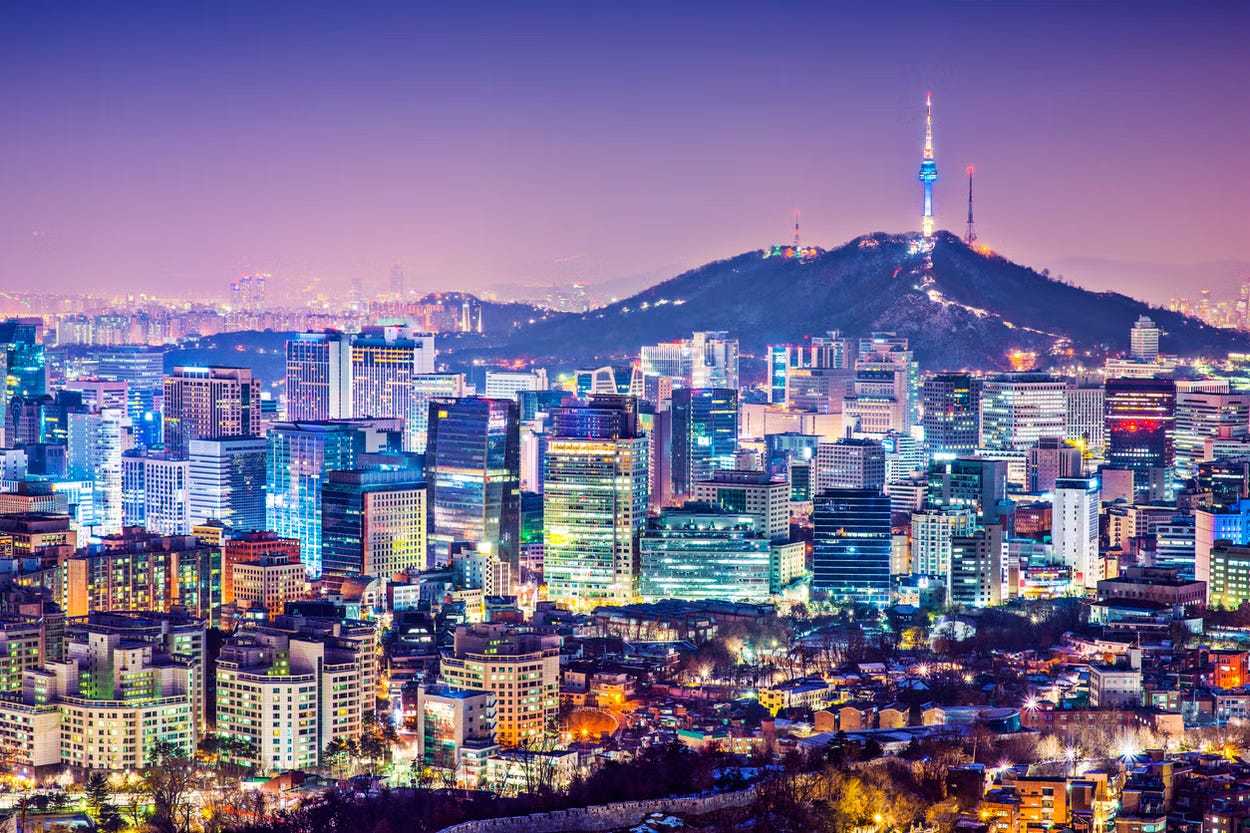Ultimate Hotspot Guide for Digital Nomads in 2024
13 min readBest locations based on: Visas, Tax Efficiency, Cost of Living, and Climate
Here’s the ultimate worldview of 20 hotspots as of 2024, based on direct and indirect experiences (friends). This guide will evolve!
In a world where Starlink enables effective internet at $70 per month anywhere in the world, it’s only a matter of time before the entire landscape changes for nomads and beyond.
In our view, off-grid locations and new hotspots will be key: not Lisbon, but Setúbal; not Milan or Florence, but Palermo, and so on.
“Super Nomads” will be both pure nomads and slow-nomads who will discover the world, embark on adventures, and optimize for happiness, performance, and above all..
Optimise for freedom.
This article provides a snapshot of Digital Nomad Hotspots to give you an overview.
But first, here’s your Digital Nomad Toolkit:
-
Multi-currency accounts: Wise and Revolut. I work with both, and they are great. It’s almost unnecessary to have a local bank account unless required for utilities.
-
VPNs: Key for secure work in certain locations. Many viable options are available on the market.
-
Wi-Fi: Starlink! The Mini is a game-changer, and I believe in a few years it will be miniaturized, changing the rules of the game once again.
-
Networking: Nomad List, Couchsurfing meetups. Or… find a new sport and the best center for it. It can be tennis, CrossFit, climbing, or anything else. It will work just fine.
N.B. Always check visa requirements and tax implications. Consult experts!
Things change fast, and I won’t be able to cover everything for each location in this article!
For now, let’s dive in.
1. Colombia 🇨🇴: South America’s Digital Renaissance
Kicking off the list, Colombia is a hotspot for travellers and with their recent Digital Nomad Visa launched in March 2023, it’s becoming a top location for nomads.
Visa breakdown: Digital Nomad Visa:
-
Valid for up to 2 years
-
Minimum income requirement: Approximately $900 per month (3 times the minimum wage)
-
Applicants must work remotely for non-Colombian companies or own a foreign-registered company
-
Health insurance coverage is required
Income tax: Income earned from foreign sources is not taxed.
Cost of living: $1000-$2,500+/month
Climate: 50°F to 90°F, varies from tropical to cooler mountain climates
Internet: 96.68 Mbps
Pros: Low cost of living with high quality of life
Cons: Safety concerns in some areas (though greatly improved)
Direct experiences: I have friends and know of people who have settled here long-term in Medellín. But have also heard that Manizales, a lesser-known city in the Coffee Triangle, offers a great mix of nature, affordable living, and is a solid contender to Medellín.
2. Costa Rica 🇨🇷: Pura Vida Meets Digital Paradise
Costa Rica is up there as one of the most popular digital nomad destinations in the world – especially in Latin America.
Visa breakdown: Specific digital nomad visa called “Rentista:”
-
1 year, renewable for 1 additional year
-
Minimum income requirement: At least $2,500 per month for two years or a $60,000 deposit in a Costa Rican bank
-
Clean criminal record
-
Health insurance coverage is required
Income tax: Non-residents are taxed only on Costa Rican-source income at a flat rate of 15%.
Cost of living: $2,000 – $3,000+/month
Climate: 70°F to 85°F year-round in most areas, Tropical
Internet: 84.39 Mbps
Pros: Beautiful nature, Stable political environment
Cons: Higher cost of living compared to other Latin American countries
Direct experiences: Admittedly, the only thing that I have personally heard is that the surf is great! I know of many people who have travelled there for vacation and loved it. Many have been surprised by the cost of living, so that is something to keep in mind.
3. Cyprus 🇨🇾: Mediterranean Tech Oasis
Cyprus has become a super solid choice for digital nomads in recent years, influx of investment and people are taking notice!
Visa breakdown: Digital Nomad Visa:
-
Valid for up to 1 year, can be renewed for another 2 years
-
Minimum income requirement: €3,500 ($3840.73) per month
-
Applicants must work remotely for companies/clients outside Cyprus
-
Health insurance coverage is required
Income tax: 0% tax on foreign income for first 17 years
Cost of living: $2,000 – $3,000+/month
Climate: 43°F to 92°F, Mediterranean, long dry summers, mild winters
Internet: Average 58.80 Mbps
Pros: Gateway to Europe, Mediterranean lifestyle, 300+ days of sunshine
Cons: Expensive compared to some options
Direct experiences: VC friends are investing in real estate there. The country is constantly open to attracting and diversifying investments. The food and weather are absolutely top-notch.
If you haven’t been to Limassol yet, you should go!
4. Georgia 🇬🇪: Europe’s Hidden Gem
Georgia is still relatively undiscovered but it’s becoming an exciting option for nomads and freedom-seekers alike.
Visa breakdown: Remotely from Georgia program:
-
Valid for 1 year, easy renewal
-
Minimum income requirement: $2,000 per month
-
Applicants must work remotely for companies/clients outside Georgia
-
Proof of health insurance is required
Income tax: 1% for small business owners
Cost of living: $1,000 – $1,500+/month
Climate: 35°F to 89°F, long hot and humid summers, short mild winters, distinct seasons
Internet: Average 26.60 Mbps
Pros: Very low cost of living
Cons: Limited flight connections
Direct experiences: I personally have never been, but a LOT is happening there. I have friends who bought an apartment there, and events in the network state spectrum are taking place.
Considering the cost of living compared to low taxes, Georgia could be an extremely viable spot and a valid hedge.
5. Greece 🇬🇷: Ancient History X Prime Nomad Destination
Greece needs no introduction as a desirable travel destination but with their digital nomad visa, it has huge potential to be one of the best options in Europe.
Visa breakdown: Digital Nomad Visa:
-
Valid for 12 months, can be extended for 2 more
-
Minimum income requirement: €3,500 ($3840.73) per month
-
Applicants must work remotely for companies/clients outside Greece
-
Health insurance coverage is required
Income tax: 50% tax break for 7 years
Cost of living: $1,800-$3,000+/month
Climate: 32°F to 99°F, Mediterranean climate with hot, dry summers and mild winters
Internet: Average ~40 Mbps
Pros: Rich culture, beautiful islands
Cons: Bureaucracy can be challenging
Direct experiences: Been multiple times and although I love Athens (and the islands), Thessaloniki life is simply put amazing – Athens-level amenities at lower costs. I’d seriously consider to move there, one day.
6. Hungary 🇭🇺: (Currently only for Russians)
Hungary has huge potential but is currently only available to Russians – though this may change in the coming years.
Visa breakdown: White Card:
-
Valid for 2 years, renewable
-
Minimum income requirement: €3,000
-
Applicants must be Russian citizens
-
Health insurance coverage is required
Income tax: 15% flat rate
Cost of living: $1,200 – $2,000+/month
Climate: 31°F to 81°F, Continental climate with hot summers and cold winters
Internet: Internet: Average 178.50 Mbps
Pros: Central European location, affordable
Cons: Limited visa options for non-Russians
Direct experiences: Consider exploring areas outside of Budapest like Lake Balaton (Europe’s largest freshwater lake), Eger, and Hortobagy.
7. Indonesia 🇮🇩: World-Famous Paradise for Nomads
Home to Bali, one of the most popular remote work locations, Indonesia is top of the list for any digital nomad.
Visa breakdown: Digital nomads can use the B211a visit visa for up to 180 days:
-
Initially valid for 60 days
-
Can be extended twice, each time for 60 days
-
Total maximum stay of 180 days
The other option is…
Second Home Visa: valid
-
Valid for 5 or 10 years
-
Minimum income/savings requirement: 2 billion Indonesian Rupiah (about $130,000) either deposited in an Indonesian state bank, or invested in Indonesian real estate worth at least $350,000
-
Health insurance coverage is required
Income tax: Foreign-sourced income not taxed if not remitted
Cost of living: $1,000 – $2,000+/month
Climate: 73.6°F to 96.1°F, Tropical climate with two seasons: dry and wet.
Internet: Average 28.34 Mbps
Pros: Beautiful beaches + incredible surfing, low cost of living
Cons: Internet can be unreliable outside major areas
Direct experiences: Bali in certain areas became overpopulated and may be spoiled. Go for the difference and Lombok seems to be definitely the next Bali.
8. Italy 🇮🇹: La Dolce Vita for Digital Workers (”La Dolce VISA”)
Visa breakdown: Digital Nomad Visa:
-
Valid for up to 1 year, renewable
-
Minimum income requirement: €28,000 ($30,726)
-
Have at least six months of experience working remotely
-
Health insurance coverage is required
Income tax: 5% flat rate for first 5 years in the south
Cost of living: $2,500 – $3,500+/month
Climate: 42°F to 95°F, varies from Mediterranean in the south to more temperate in the north.
Internet: Average 71.40 Mbps
Pros: Unmatched culture, food etc. (I’m a bit biased…)
Cons: High costs in major cities
Direct experiences: I want to spend a few words remarking on the warm and deep culture of Sicily, which is often underrated. Life in Palermo will cost you half as much as in Milan, especially when it comes to food and is just as incredible (if not more). The weather seems to come from a different place entirely.
For digital nomads or those planning longer stays, having business and clients abroad while living in Southern Italy can be unparalleled, especially during the off-season. Don’t go to Puglia in August; instead, visit during spring, autumn, or winter.
9. Japan 🇯🇵 : New Digital Nomad Spot
Visa breakdown: NEW Digital Nomad Visa: up to 6 months for eligible foreign nationals
-
Valid for up to 6 months (non-renewable within a one-year period)
-
Minimum Income Requirement: 10 million JPY (approximately $68,000 USD) per year
-
Health insurance coverage is required
Income tax: Progressive, up to 45%
Cost of living: $2,500 – $4,000+/month
Climate: 36°F to 87°F, varies from subarctic in the north to subtropical in the south
Internet: 196.59 Mbps
Pros: Incredible culture and tech, every season is beautiful
Cons: Relatively high living costs
Direct experiences: I haven’t been but it’s top on my list to visit. If I was nomading now, I would probably go there and South Korea. I heard good things and there could be business opportunities of various kind.
10. Malaysia 🇲🇾: Southeast Asian Melting Pot
Visa breakdown: DE Rantau Nomad Pass:
-
Valid for 12 months, renewable for up to 2 more years
-
Minimum income requirement: RM10,000 per month (about $2,200)
-
Applicants must work for foreign companies or their own foreign-registered company
-
Health insurance coverage is required
Income tax: Foreign-sourced income not taxed
Cost of living: $1,200 – $2,000+/month
Climate: 68°F to 95°F, tropical climate with high temperatures and humidity year-round
Internet: 112.21 Mbps
Pros: Multicultural, modern infrastructure
Cons: Air quality issues in some areas
Direct experiences: Kuala Lumpur is possibly right now along with Bangkok the best option for asian life, affordable cost of living and opportunities. I had many friends relocating or spending time there. Not one to overlook!
11. Malta 🇲🇹: Mediterranean Island Tech Hub
Visa breakdown: Nomad Residence Permit:
-
Valid for 1 year, renewable
-
Minimum income requirement: €2,700 ($2963) per month
-
Applicants must work remotely for foreign companies or their own foreign-registered company
-
Health insurance coverage is required
Income tax: 15% flat rate for qualifying expats, corporate tax 5%
Cost of living: $2,000 – $3,000+/month
Climate: 61°F to 73°F, Mediterranean climate with hot, dry summers and mild winters
Internet: Average 39 Mbps
Pros: English-speaking, Mediterranean lifestyle
Cons: High living costs, can feel crowded
Direct experiences: Gozo island offers tranquil Mediterranean living just a ferry ride from Malta’s tech hub
12. Mexico 🇲🇽: Latin America’s Digital Nomad Mecca
No Ultimate Digital Nomad list would be complete without Mexico!
Visa breakdown: Temporary Resident Visa:
-
Valid for up to 4 years
-
Valid passport
-
Proof of financial solvency (bank statements showing a monthly income of at least $2,100 or a bank balance of $35,000 over the last 12 months)
-
Proof of employment or self-employment
Income tax: Non-residents are taxed only on Mexican-source income
Cost of living: $1,500 – $2,500+/month
Climate: 50°F to 90°F, varies from tropical to desert depending on the region
Internet: 57.76 Mbps
Pros: Rich culture and incredible food scene
Cons: Safety concerns in some areas
Direct experiences: I’ve never been, but from what I hear…the food is incredible! I’ve also heard that Puerto Escondido is great if you’re looking for surf culture with a growing digital nomad scene. But mixed reviews on connectivity there so this would possibly be a location to be armed with Starlink!
13. Portugal 🇵🇹: Europe’s No. 1 Nomad Destination
Visa breakdown: D7 Visa:
-
Valid for 2 years, renewable
-
Minimum income requirement: €705 ($773.63) per month (Portuguese minimum wage)
-
Applicants must have proof of accommodation
-
Health insurance coverage is required
Income tax: 0% foreign income is achievable BUT requires structuring under NHR 1.0 that will return soon
Cost of living: $1,500 – $2,500+/month
Climate: 50°F to 86°F, mostly Mediterranean, hot dry summers, mild but wet winters
Internet: Average 173.57 Mbps
Pros: High quality of life, great weather
Cons: Rising costs in popular areas
Direct experiences: Definitely biased.
But Portugal will undoubtedly reclaim its top position once the original Non-Habitual Resident (NHR) regime returns. For ten years, it offers essentially 0% tax if you don’t conduct business in Portugal and travel to a tax-free location, all within an incredible European culture. Portugal combines the best of Europe—culture, food, and safety—with an open-minded atmosphere.
Portuguese people, especially in central and southern Portugal, speak English and will make you feel welcome.
I predict that with the return of the NHR regime, Portugal’s top position will be reinforced.
14. Romania 🇷🇴: Europe’s rising star for freedom-seekers
Visa breakdown: Digital Nomad Visa: Introduced in January 2022.
Key points include:
-
Valid for up to 12 months, renewable for another 12 months
-
Minimum income requirement: €3,300 per month (about $3,600)
-
Applicants must be employed by a foreign company or have their own company registered outside Romania
-
Health insurance coverage is required
Income tax:
Cost of living: $1,000 – $1,800+/month
Climate: 26°F to 89°F, hot summers, long cold winters (lots of snow)
Internet: 105.46 Mbps (one of the fastest in Europe)
Pros: Very affordable cost of living, EU member with access to Schengen zone
Cons: Bureaucracy can be challenging
Direct experiences: I have friends who told me very nice things about Cluj-Napoca. I have also heard of fiscal regimes for corporate that can be extremely advantageous. Not done get a deep dive on this, let me know if this would be of interest in a reply!
15. Seychelles 🇸🇨: Indian Ocean Work Paradise
Visa breakdown: Digital Nomad Visa:
-
Valid for 1 year
-
Minimum income requirement: Proof of income
-
Applicants must have proof of employment or ownership of a company outside Seychelles
-
Health insurance coverage is required
Income tax: 15% flat rate
Cost of living: $1,500 – $4,000+/month
Climate: 75°F–86°F, tropical climate
Internet: Average 23 Mbps
Pros: Tropical paradise, pristine beaches
Cons: Expensive, limited amenities
Direct experiences: Great vacation spot! But this one is quite under the radar for digital nomads and really optimal only if you wish to live the island vacation life longer term.
16. Spain 🇪🇸: Sun, Sangria, and Startups
Visa breakdown: Digital Nomad Visa:
-
Valid for 1 year, renewable for up to 5 years
-
Minimum income requirement: 200% of the minimum wage (about € 2,334 ($2,560.95) per month)
-
Applicants must work remotely for non-Spanish companies
-
Health insurance coverage is required
Income tax: 24% flat rate for first 4 years
Cost of living: $2,000 – $3,000+/month
Climate: 34°F to 90°F, Mediterranean/Oceanic, hot and dry in the South, more rainfall in the North
Internet: 209.00 Mbps
Pros: Rich culture, great food, good healthcare
Cons: Bureaucracy, crowded tourist areas
Direct experiences: Valencia offers beaches and lower costs over Barcelona. Andalusia is magnificent, possibly to double check the west side of it.
17. Thailand 🇹🇭: The OG Digital Nomad Tax Haven
Visa breakdown: Smart Visa:
-
Valid for up to 4 years
-
Minimum income requirement: 200,000 baht per month (about $5,600)
-
Applicants must work in specific high-skilled sectors
-
Health insurance coverage is required
Income tax: Currently, foreign income not brought into Thailand is completely tax-free for Thai fiscal residents (those staying in the country for more than 183 days per year)
Cost of living: $1,000 – $2,000+/month
Climate: 55°F to 104°F, tropical climate with three main seasons: hot, cool, and rainy
Internet: Average 205.63 Mbps
Pros: Amazing food, beaches, low cost of living
Cons: Air quality issues
Direct experiences: Many of my friends have moved there, some also from Dubai!
I have never lived there, but I think Bangkok and Thailand in general is along with Malaysia the right spot in this historical period. Low cost of life, culture, quality of services.
Somehow in the west there’s this sort of idea that Thailand is an antiquated non-developed place or it’s only the desirable destination for those seeking nefarious activities. It’s not the case. Many reasons to seriously consider Thailand for the short and even longer-term.
18. UAE 🇦🇪: Futuristic Cities in the Desert
Visa breakdown: Remote Work Visa:
-
Valid for 1 year, tax-free
-
Minimum income requirement: $5,000 per month
-
Applicants must have an employment contract with a company outside the UAE
-
Health insurance coverage is required
But there’s also the Freelance Visa, making invoices from Dubai, lower cost than having a company there.
Income tax: 0%
Cost of living: $3,000-$4,000+/month
Climate: 57°F to 106°F, HOT, desert
Internet: 291.85 Mbps
Pros: Tax-free, incredible infrastructure
Cons: Hot climate, high cost of living, controversial
Direct experiences: Abu Dhabi has a more local vibe than Dubai, more authentic, very high level network. Still unspoiled.
19. Turkey 🇹🇷: East Meets West for Nomads
Visa breakdown: NEW Digital Nomad Visa:
-
Valid for 1 year, renewable
-
Minimum income requirement: $3,000 per month
-
Applicants must be between 21 and 55 years old
-
Health insurance coverage is required
Income tax: Progressive, up to 40%
Cost of living: $1,000 – $1,800+/month
Climate: 45°F to 84 °F, Mediterranean, hot and dry summers, mild winters
Internet: 41.49 Mbps
Pros: Affordable, rich history
Cons: Political instability, currency fluctuations
Direct experiences: I have heard many people happily nomading in Istanbul and also places like Antalya combines Mediterranean lifestyle with rapidly growing nomad community.
20. South Korea 🇰🇷: Asian Tech Powerhouse
Visa breakdown: Workcation visa:
-
Valid for up to 2 years (initially 1 year, with the possibility of a 1-year extension)
-
Minimum income requirement: About $65,860 per year
-
Applicants must have at least one year of experience in their current field
-
Health insurance coverage is required
Income tax: Progressive, up to 45%
Cost of living: $1,800 – $3,000+/month
Climate: 21°F to 85°F, hot humid summers, cold dry winters, distinct seasons
Internet: 123.36 Mbps
Pros: Incredible tech infrastructure, unique culture (great nightlife)
Cons: High cost of living (especially in Seoul), language barrier
Direct experiences: I’ve been there multiple times for conference and Seoul is one of the most fascinating cities out there.
The business and tech scene is extremely interesting although language can be a barrier at times.
There you have it!
Hope this V1 of The Ultimate Hotspot Guide for Digital Nomads proves to be useful for you.
For the next guide I will be looking to get more specific and highlight specific spots to look into – but not just the most popular destinations.
I am of a personal conviction that the best places are rarely the ones you discover as soon as you land in a country and then in their biggest cities.
Good examples are the area of Cascais and Estoril for Lisbon.
But more than this, I believe that the future “Super Nomads” will go even further off the grid. Armed with Starlink and a vision of true freedom.
So I’d love for you to take part in the creation of the next guide!
What are some of the best local-known and less popular cities and towns that you’ve come across that would be perfect for the next generation of digital nomad?
Please feel free to reply to this email and suggest any places you’d like me to cover. I read all replies and always love hearing from you!
With love,
Ale
